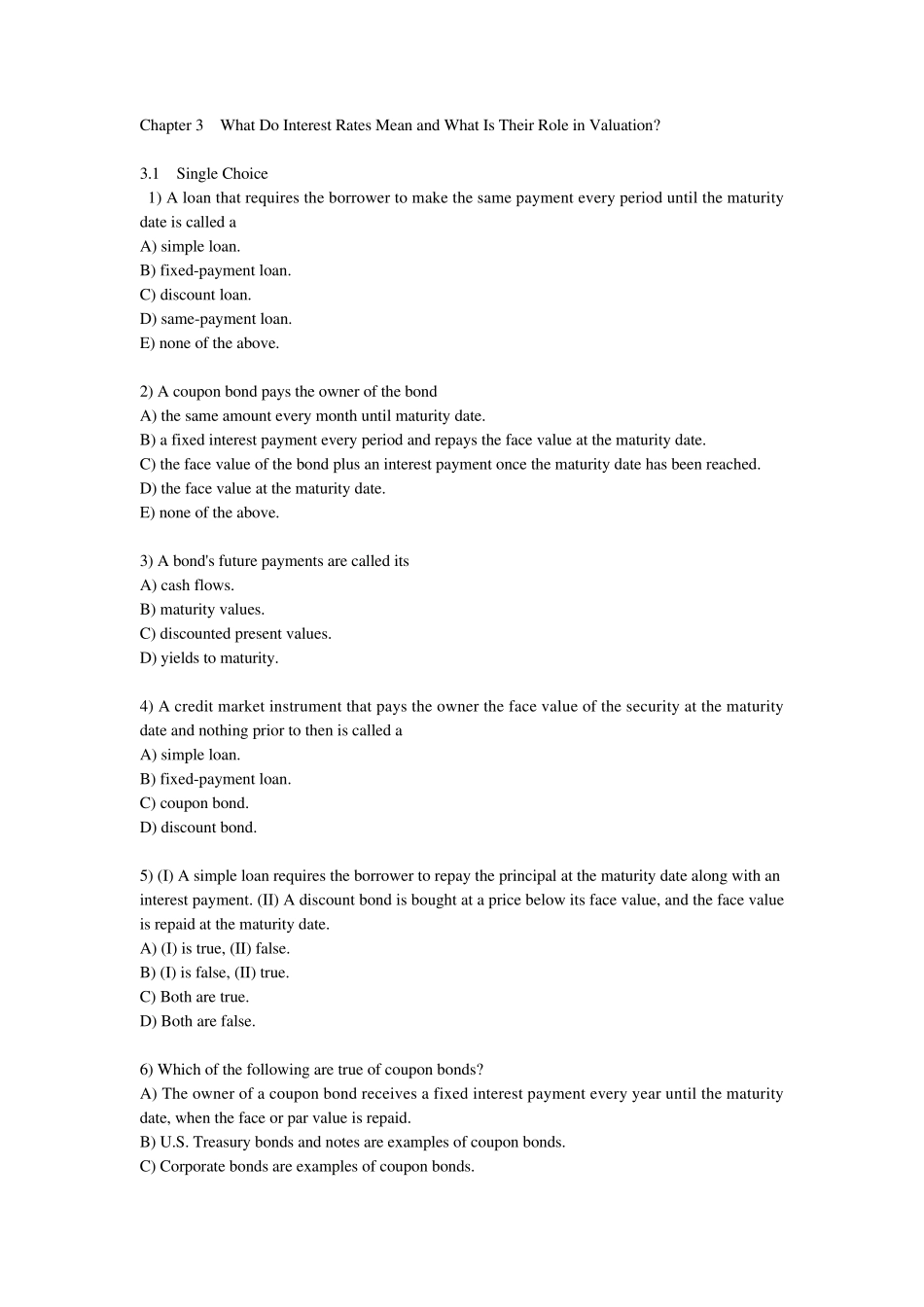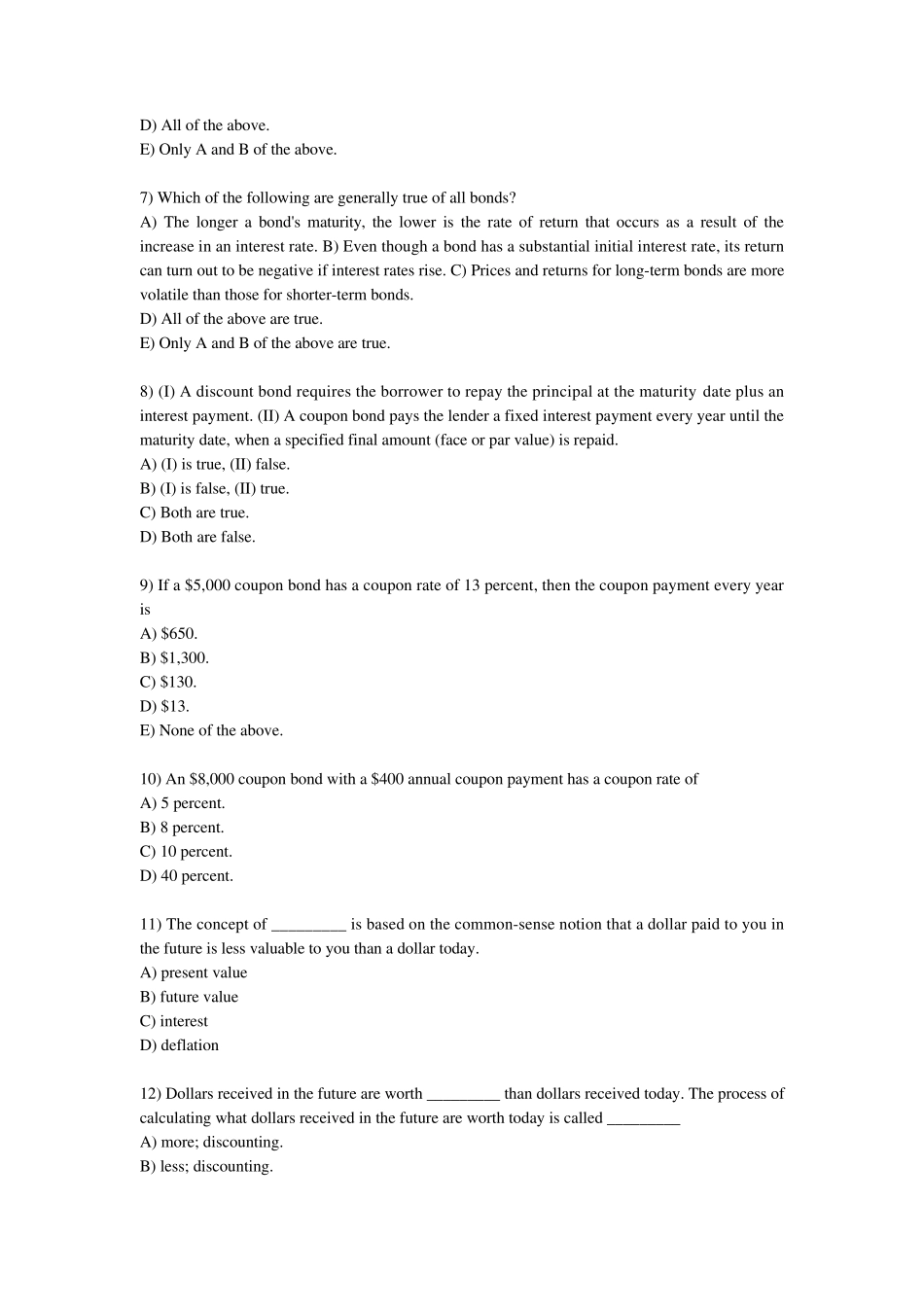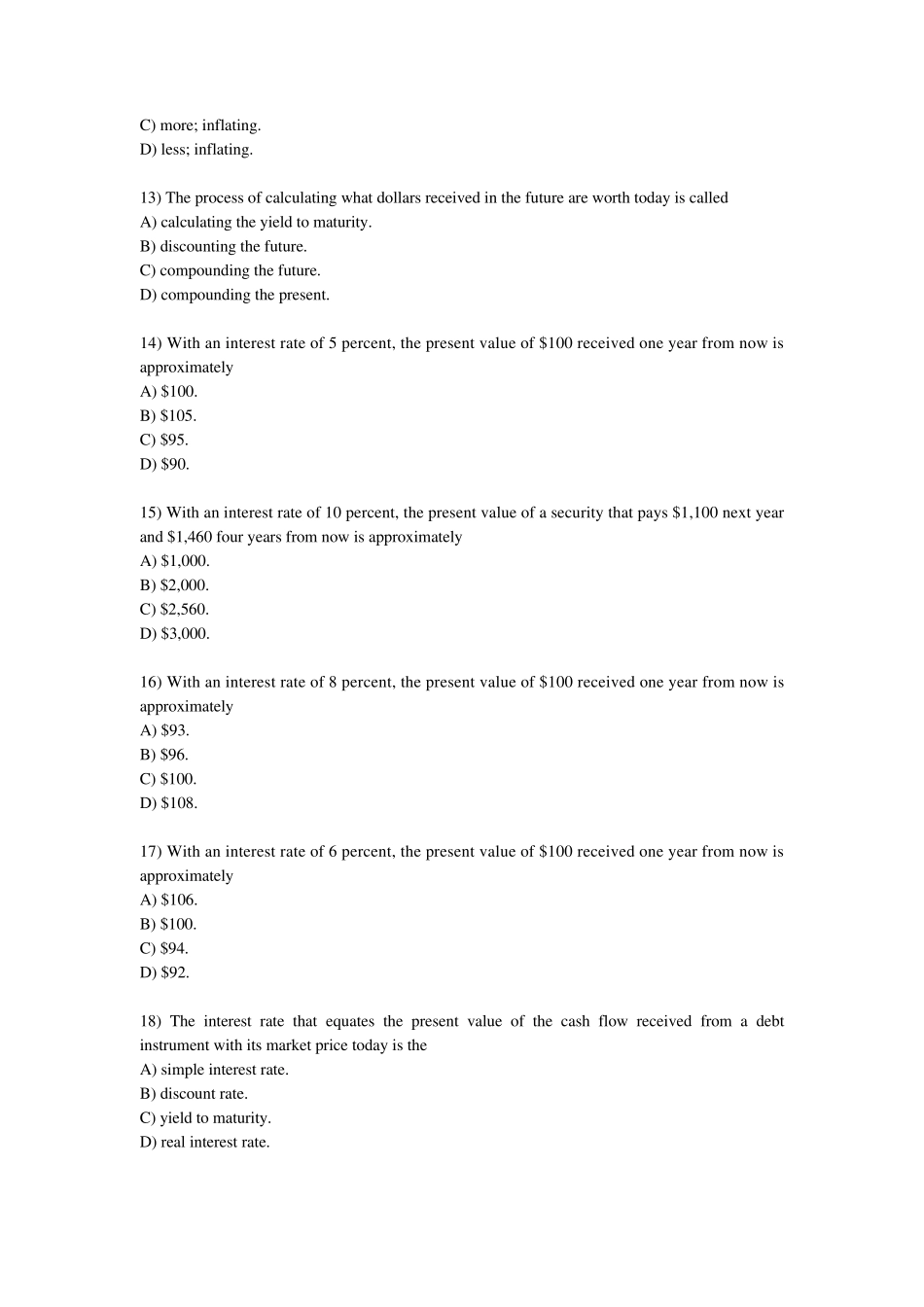Chapter 3 What Do Interest Rates Mean and What Is Their Role in Valuation? 3.1 Single Choice 1) A loan that requires the borrower to make the same payment every period until the maturity date is called a A) simple loan. B) fixed-payment loan. C) discount loan. D) same-payment loan. E) none of the above. 2) A coupon bond pays the owner of the bond A) the same amount every month until maturity date. B) a fixed interest payment every period and repays the face value at the maturity date. C) the face value of the bond plus an interest payment once the maturity date has been reached. D) the face value at the maturity date. E) none of the above. 3) A bond's future payments are called its A) cash flows. B) maturity values. C) discounted present values. D) yields to maturity. 4) A credit market instrument that pays the owner the face value of the security at the maturity date and nothing prior to then is called a A) simple loan. B) fixed-payment loan. C) coupon bond. D) discount bond. 5) (I) A simple loan requires the borrower to repay the principal at the maturity date along with an interest payment. (II) A discount bond is bought at a price below its face value, and the face value is repaid at the maturity date. A) (I) is true, (II) false. B) (I) is false, (II) true. C) Both are true. D) Both are false. 6) Which of the following are true of coupon bonds? A) The owner of a coupon bond receives a fixed interest payment every year until the maturity date, when the face or par value is repaid. B) U.S. Treasury bonds and notes are examples of coupon bonds. C) Corporate bonds are examples of coupon bonds. D) All of the above. E) Only A and B of the above. 7) Which ...


